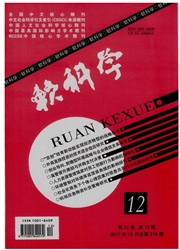

 中文摘要:
中文摘要:
本文基于投资者认知风险理论,以2003-2012年沪深两市A股上市公司为样本,检验了中国股市投资者认知风险对盈余惯性的影响以及在不同信息不确定性程度下两者之间的关系。研究发现,投资者认知风险与盈余惯性显著正相关;对于信息不确定性高的企业,投资者认知风险对盈余惯性的影响更为显著。此外,投资者认知风险还可以解释市场对好消息和坏消息的反应程度是非对称的。本文的研究结论对理解盈余惯性的产生原因和形成机制,以及信息不确定性视角下投资者认知风险与盈余惯性的关系均具有一定的启示。
 英文摘要:
英文摘要:
Based on the theory of investors' cognitive risk and the samples from Shanghai and Shenzhen stock exchanges' A-share listed companies from 2003 to 2012, this paper tests the impact of cognitive risk of Chinese stock market investors on earnings momentum, and this relationship under different levels of information uncertainty. This paper finds that the earnings momentum increases with the increase of investors' cognitive risk level strictly after the earnings announcement, and the effect of investors' cognitive risk on earning momentum is more significant for enterprises with high degree of information uncertainty. In addition, investors' cognitive risk could also explain the phenomenon that the degree of market reaction to the good news and bad news is asymmetric. The conclusions of this paper have some implications for understanding the causes and mechanisms of earnings momentum, as well as the relationship between investors' cognitive risk and earnings momentum from the perspective of information uncertainty.
 同期刊论文项目
同期刊论文项目
 同项目期刊论文
同项目期刊论文
 期刊信息
期刊信息
